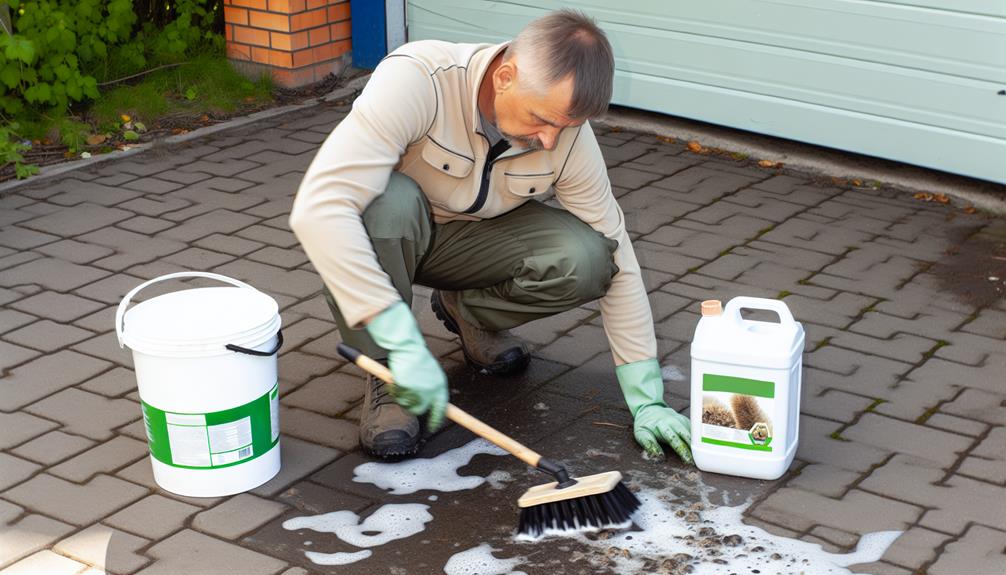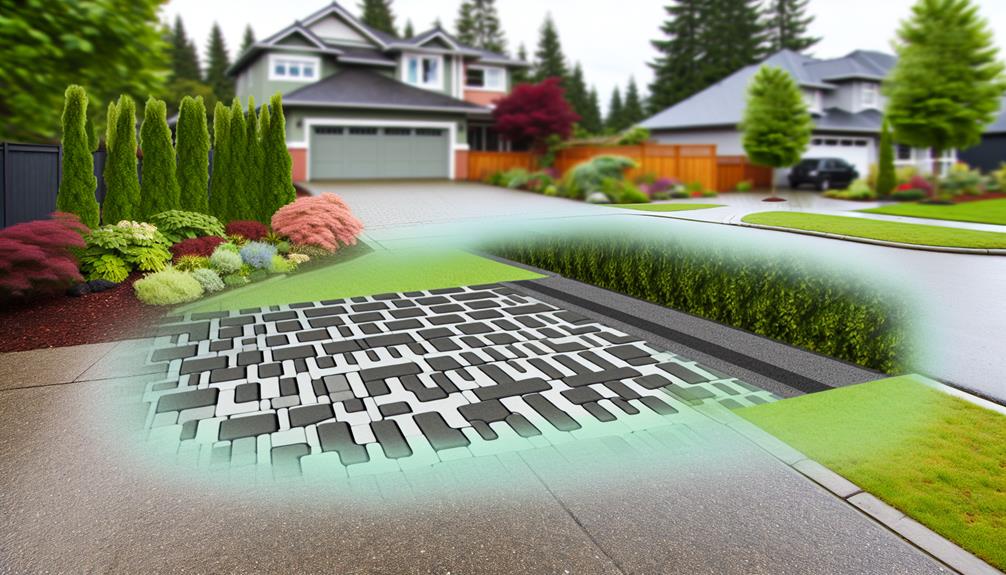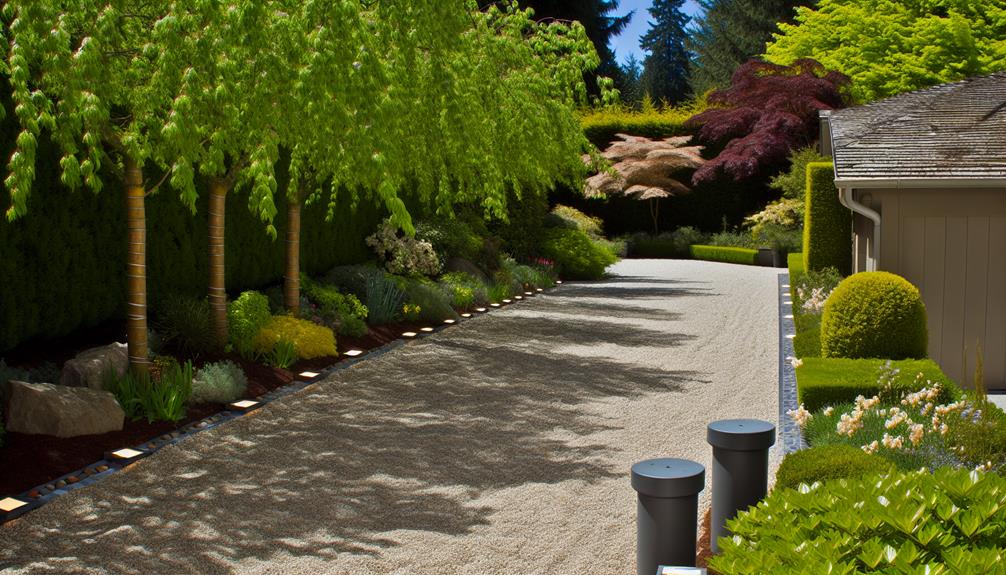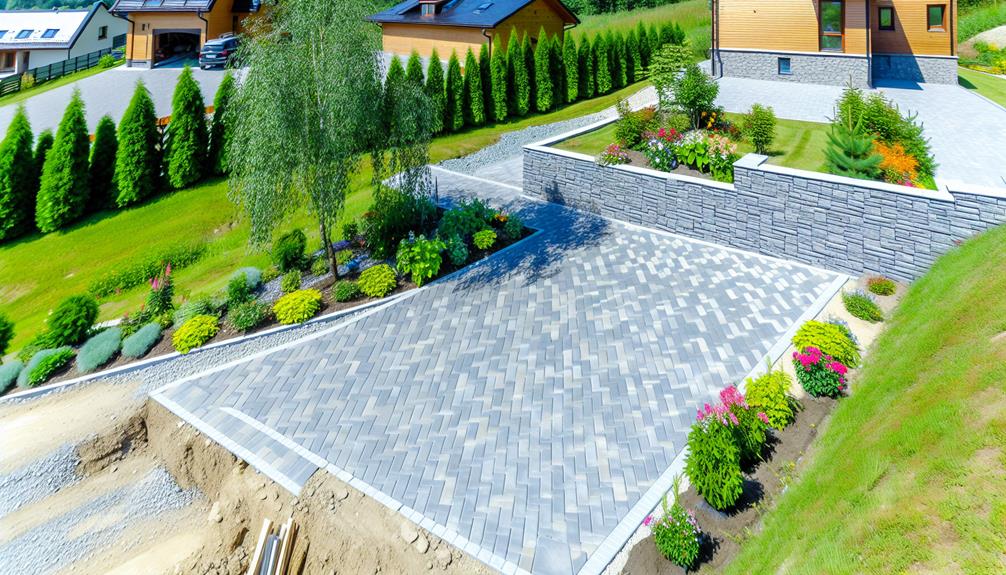Did you know that traditional impermeable driveways can contribute to up to 70% more runoff than permeable alternatives? Imagine the impact you could make by choosing sustainable permeable driveway options for your property. From reducing water pollution to supporting local ecosystems, the benefits are numerous. But what exactly are these options, and how can they revolutionize the way we manage stormwater? Let's explore the world of sustainable permeable driveways together and discover how you can make a difference right at your doorstep.
Benefits of Permeable Driveways
Reducing stormwater runoff and preventing water pollution, permeable driveways allow for water infiltration, promoting sustainable water management practices. These driveways facilitate the natural process of groundwater recharge, aiding in maintaining balanced groundwater levels and preventing erosion in surrounding water bodies. Through soil filtration, permeable driveways purify water as it percolates, enabling microorganisms to break down pollutants and enhance water quality. Visually, these driveways soften the property's appearance, adding aesthetic appeal while mitigating the heat island effect by reducing heat retention. Implementing a permeable driveway design not only offers environmental advantages but also contributes to establishing a sustainable water management system. By choosing permeable driveways, you are actively participating in water conservation efforts, improving water quality, and promoting eco-friendly practices that benefit both your property and the broader environment. Consider the long-term benefits of permeable driveways in enhancing sustainability and water resource management on your property.
Material Options for Permeable Driveways
When selecting material options for permeable driveways, consider the cost-effectiveness and water infiltration capabilities of gravel surfaces. Gravel driveways are a practical choice, allowing water to pass through easily, reducing runoff, and providing a cost-effective solution. Reinforced grass driveways combine functionality with natural aesthetics, but it's crucial to select the right grass type to ensure optimal growth and efficient water drainage. Permeable concrete, flagging, and asphalt are excellent options for sustainable urban drainage systems (SuDS) as they allow water to penetrate the surface, aiding in water management. Resin-bound surfaces are also SuDS compliant, offering permeability for water infiltration; however, they require careful maintenance to prevent issues with spills like brake fluid or oil. Lastly, soakaways, large ground holes designed for water absorption, can be an effective solution for water drainage but require proper design to ensure efficient drainage solutions. Each material option presents unique benefits and considerations to keep in mind when planning a permeable driveway.
Design Considerations for Permeable Driveways
To optimize the functionality and effectiveness of permeable driveways, strategic design considerations must be meticulously integrated into the planning process. Utilizing materials such as permeable pavers, gravel, or grass grids is crucial for facilitating water drainage and reducing stormwater runoff. Additionally, the proper construction of a strong base using clean rock and polyurethane liners can significantly enhance the durability and performance of the driveway.
Redirecting water from rooflines and downspouts to the driveway can expand the permeable area and aid in groundwater recharge, further maximizing the environmental benefits of the design. It is essential to take into account factors like climate, maintenance needs, and local regulations when planning the installation of permeable driveways to ensure long-term success and compliance.
Installation Process for Permeable Driveways
For effective installation of permeable driveways, establishing a robust base of clean rock is paramount to minimize structural issues like cracking and heaving. The use of a polyurethane liner near foundation walls or concrete during installation helps protect the underlying structure. Ensuring proper joint width and tabs is crucial for the easier installation of pavers in a permeable driveway. Gravel driveways necessitate a base underlayment to maximize perviousness and guarantee effective water penetration. Climate conditions and maintenance requirements should be carefully considered when planning the installation of a permeable driveway design. By following these steps diligently, you can create a durable and sustainable driveway that effectively manages water runoff and contributes to environmental conservation. Remember, attention to detail during the installation process is key to the long-term success and functionality of your permeable driveway.
Maintenance Tips for Permeable Driveways

Looking to maintain the permeability of your driveway effectively? To ensure the longevity and functionality of your permeable driveway, there are key maintenance tips to follow. Regularly removing debris and organic matter is crucial to prevent clogging and maintain permeability. Using a pressure washer or hose to clean the surface will help prevent sediment buildup, preserving the permeability of the driveway. Harsh chemicals and solvents should be avoided as they can damage the permeable surface over time. Promptly repairing any damaged areas is essential to prevent water pooling, which can compromise the effectiveness of the drainage system. For comprehensive cleaning and upkeep, consider hiring professional maintenance services. By adhering to these maintenance practices, you can prolong the lifespan of your permeable driveway while ensuring it continues to effectively manage water runoff and maintain its permeable properties.


